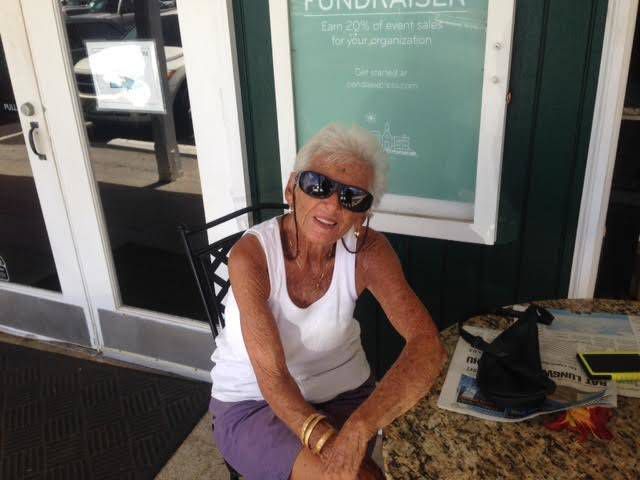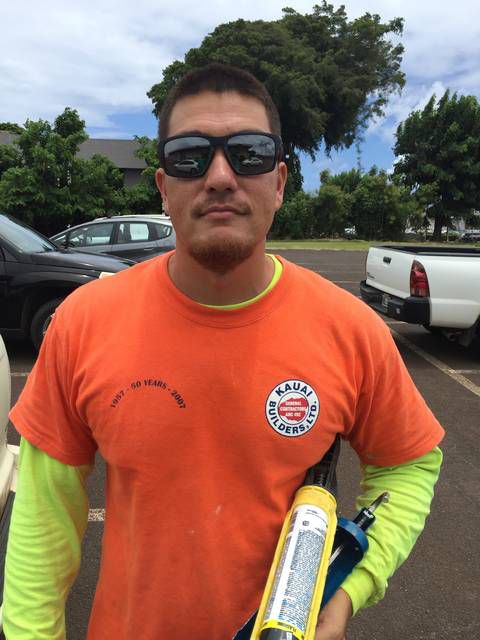LIHUE — Hawaii’s management authorities recently released guidelines on how to survive a nuclear detonation. Early last month, the Unites States toughened its military pressure and tone with North Korea after the nation conducted a successful test of an intercontinental
LIHUE — Hawaii’s management authorities recently released guidelines on how to survive a nuclear detonation.
Early last month, the Unites States toughened its military pressure and tone with North Korea after the nation conducted a successful test of an intercontinental ballistic missile that appeared to be able to hit America’s two most western states: Alaska and Hawaii.
And three weeks after the U.S. described the test as a “dangerous escalation” in what has become a crisis for the Trump administration, Hawaii’s Emergency Management Agency released steps that could help to survive a nuclear blast hitting a city or beach community. That has some worried, but not many.
“I thought about moving for a second, but this is where my family and friends are. This is where my life is,” said Teddy Polito, lifelong resident of Anahola. “This island has faced a lot, and I’m sure it can handle what comes its way.”
PMRF Capt. Vincent Johnson said it’s prudent to be prepared, but the “under your desk drills” aren’t necessarily helpful.
“I sleep soundly, and there’s no reason why you guys shouldn’t,” Johnson said. “I’m not sure we’re there yet, to start doing (those kinds of) things because of what’s going on in the world.”
No current activities at PMRF are being conducted in direct response to what’s going on in the news right now, he said.
“The best thing we can do to be stewards of the nation’s security is to train our guys and put capabilities into their hands for tomorrow,” he said.
The Garden Island recently asked Kauai residents what they thought about the country’s relationship with North Korea.
“I’m nervous. I keep wondering if this is how people felt before Pearl Harbor,” said Jessica Irani, an Americorps member from Moloaa. “We’re not that far from Guam. It’s definitely on my mind.”
Kapaa resident Vimal Singh expressed a pragmatic attitude, saying, “I don’t know what to make of it all. You want to believe that our administration has a game plan, but you never know. I just hope for the best … I hear it can all happen in just 20 minutes. I just hope Hawaii is prepared.”
While the attacks are presented as serious threats, many residents haven’t considered taking action.
“There’s not a lot you can do about it,” said Jay Gailey, a helicopter mechanic from Lihue who has lived here for 30 years. “A lot of people here are at stake, and we have all the visitors. It could definitely make Hawaii a less popular place to visit. Hopefully they can use diplomatic channels before they start wars all over.”
Most residents thought it more beneficial to seek peaceful solutions to the issue, and were unsure of North Korea leader Kim Jong-un’s motives.
“To me he is kinda crazy this guy,” said Tyrus DeLosReyes, a 32-year-old carpenter from Hanamaulu who has lived here his whole life. “But hopefully they can end um in peace and not come to one war actually. Too much war we get.”
Others expressed more critical opinions of the Trump administration while regarding the United States’ relationship with North Korea.
“When you have two crazy people in charge, something is bound to happen. I’m not going to take cover. I’ve lived through World War II, but with this administration nothing is for certain,” said Lan Meyers, who retired to Kauai eight years ago. “I haven’t thought about moving. I don’t really think anyone has.”
On the list of island risks that include hurricanes, tsunamis, earthquakes and flooding, a missile threat from North Korea does not rank high.
Michael Braunstein, who moved here from Michigan in the early ’90s, called the ordeal as “just another publicity stunt.”
“If Trump avoids getting us hit with a nuclear missile, then he’ll be seen as a hero, when he is the one who got us into this mess in the first place,” Braunstein said. “I’d like to think if the election went another way, we wouldn’t be preparing ourselves for something like this.”
The majority of people interviewed took a sensible attitude about the issue.
“I lived through the Cuban Missile Crisis, you just have to take these things as they come,” said local psychologist Judith White. “Live your life, laugh, meditate, breathe, and know we are fine. You can’t let the threat become the attack.”




